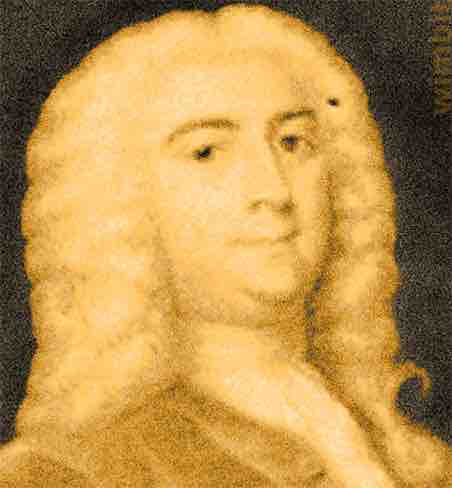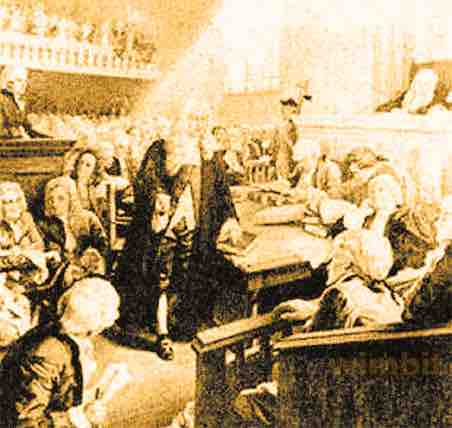Limits to Freedom of Expression in the Colonies
Although there remains much work to be done examining freedom of expression in the American colonies, historians generally agree that there were fewer prosecutions for seditious libel in the colonies than there were in England. However, colonial governments still exercised various forms of control over dissident speech.
The most stringent bans on speech in the colonial period outlawed or censored speech that was considered religiously blasphemous. A 1646 Massachusetts law, for example, punished persons who denied the immortality of the soul. In 1612, the governor of Virginia sentenced to death a person that denied the Trinity under Virginia's Laws Divine, Moral and Martial, which also outlawed blasphemy, speaking badly of ministers and royalty, and "disgraceful words." However, more recent scholarship focusing on seditious speech in the 17th-century colonies has indicated that from 1607 to 1700, freedom of speech expanded dramatically, laying a foundation for the political dissent of the Revolutionary War.
The Zenger Trial and Freedom of the Press
One such instance in which the concept of freedom of expression dramatically expanded was the Zenger Trial. John Peter Zenger, a New York newspaper editor, began to voice opposition to several policies implemented by the newly appointed colonial governor, William Cosby. Zenger published editorials detailing Cosby's rancorous quarrel with the colonial council over his salary, as well as Cosby's removal of Chief Justice Lewis Morris from the New York Supreme Court in order to replace him with a more pliable official.

Sir William Cosby, Governor of New York
Cosby was attacked by Zenger's paper for his actions while governor of New York.
Supported by members of the popular party, Zenger's New-York Weekly Journal continued to publish critical attacks on the royal governor. In 1734, Cosby issued a proclamation condemning the newspaper's "scandalous, virulent, false and seditious reflections," and in November, Zenger was arrested and charged with seditious libel. After more than eight months in prison, Zenger was defended in court by Philadelphia lawyer, Andrew Hamilton.
In the trial, Hamilton appealed directly to the jury, claiming that the truth could not be defamatory, and therefore, Zenger could not be found guilty of libel. Although the judge dismissed this claim entirely, Hamilton persuaded the jury to disregard the laws on libel in favor of this concept—an argument that convinced the jury to return a verdict of "not guilty. " Therefore, not only did the Zenger Trial result in a remarkable instance of jury nullification, but it also established a precedent for protecting the freedom of the press in the American courts.

The Zenger Trial
Depiction of Alexander Hamilton defending Zenger